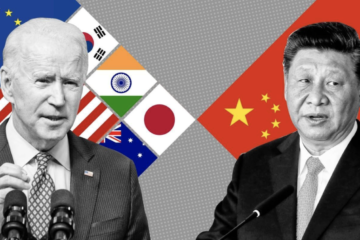What do I think about the current situation in Hong Kong?
Out of everything that has happened in Hong Kong since September’s Legislative Council election, where a new generation of pro-democracy politicians were elected into public office, I think that the most concerning thing that has happened is the NPCSC’s (China’s top legislative body) public statement of their interpretation of the Basic Law (Hong Kong’s mini-constitution).
This interpretation was made after two newly elected pro-independence activists, Baggio Leung and Yau Wai-Ching, were stopped from being officially sworn into office as they had modified parts of their oath during the swearing in process – for example, pledging allegiance to “the Hong Kong nation” as well as mispronouncing “China” as “Chee-na”, considered by many to be a slur. China swiftly intervened by releasing their interpretation of the article in Hong Kong’s Basic Law pertaining to the process of swearing in elected legislators, and came to the conclusion that the two “localist” activists should not be allowed to take up their seats. The interpretation was quickly implemented, when last Tuesday, Hong Kong’s high court ruled that the two activists would be banned from taking up office.

Law and politics should be separate, which is almost always the case in Hong Kong – except when the Chinese government gets involved. The interpretation they have made not only gives control to the Hong Kong government over the oathtaking process and thus who is allowed to hold public office, but also gives them enough wiggle room to also limit what public officers can do both before and after they take the oath. Not only has this already completely ruled out advocates of Hong Kong independence from participating in established political institutions, it has also plunged all localist groups that advocate self-determination into a dangerous grey area.
On an emotional level, I fear that Hong Kong’s judicial independence will be compromised even more than it already is, and that this interpretation of the Basic Law could very well mean the first step to the premature end of Hong Kong’s “high level of autonomy” as we know it. But I understand why the Chinese government saw the need to do so, because “One Country, Two Systems”, the constitutional framework that sets out Hong Kong’s relationship with China, relies on a) the Chinese government’s goodwill and trust in Hong Kong, and b) Hong Kong’s recognition of some kind of political bottom line. These two factors feed into each other, and if either side disrupts that equilibrium, “One Country, Two Systems” will begin to crumble.

Ever since 2003, when Hong Kong’s Legislative Council failed to pass the controversial Article 23 proposal that sparked massive protests involving half a million people, the Chinese government has repeatedly revised downward its view of the ability of the Hong Kong government to protect China’s basic aim of national sovereignty. In response to such problems, China has seen the need to step up its presence in Hong Kong, which then makes the problem worse because the Hong Kong people see this as interference. The 2012 “National Education” proposal, Occupy Central in 2014, and the most recent Legislative Council controversy illustrates the impact of this feedback loop, with Hong Kong society becoming more polarized and the Chinese government becoming more heavyhanded.
I believe the problem lies in the Basic Law itself. For as long as the Chinese government maintains its right by law to interpret the Basic Law, Hong Kong’s judicial independence is just a myth. Hong Kong’s political independence will also be compromised through a judicial channel that is not meant to be political, as the interpretation of Article 104 has already demonstrated. Ideally, I would like Hong Kong to determine its laws without the constraints of the mainland – in other words, revise the Basic Law and remove the Chinese government’s right to interpret the Basic Law, as a good proportion of the localist camp advocates. Practically, however, the chances that this will happen are extremely slim; there is no way the Chinese government will sit quietly and just let this happen, and besides, the legislators who could call for such a change are already in danger of losing their seats. The gap between what I would like to happen and what can actually happen is just too wide to bridge.


